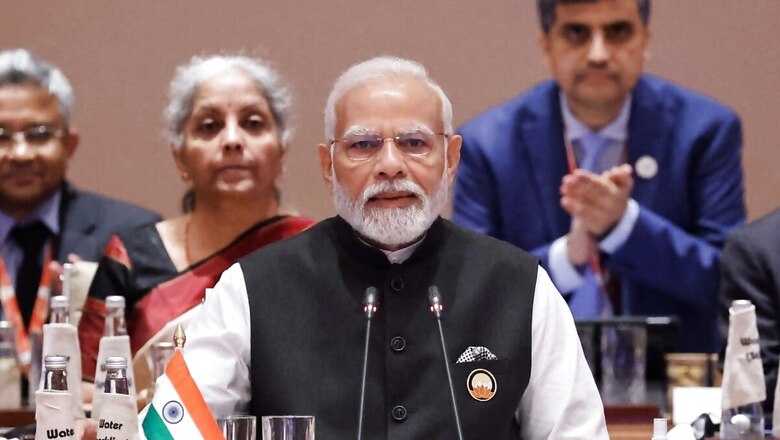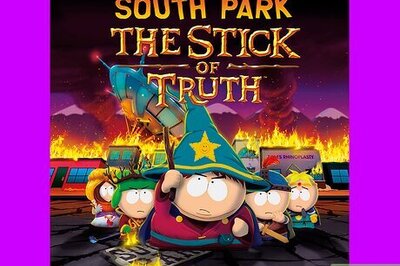
views
The original “Great Game” was fought in the mid-1800s between the Russian Empire and the combined might of the British, French and Ottoman Empires over control of Central Asia. The British feared an attack by the Imperial Russian Army through Afghanistan on their Indian colony. The Ottomans, though in decline, wanted to guard against Russian incursions into their Balkan possessions.
As a report by Kallie Szczepanski (thought.com) described it: “Britain’s Lord Ellenborough started ‘The Great Game’ on January 12, 1830, with an edict establishing a new trade route from India to Bukhara, using Turkey, Persia, and Afghanistan as a buffer against Russia to prevent it from controlling any ports on the Persian Gulf. Meanwhile, Russia wanted to establish a neutral zone in Afghanistan allowing for their use of crucial trade routes.”
“The Great Game officially ended with the Anglo-Russian Convention of 1907, which divided Persia (Iran) into a Russian-controlled northern zone, a nominally independent central zone, and a British-controlled southern zone. The Convention also specified a borderline between the two empires running from the eastern point of Persia to Afghanistan and declared Afghanistan an official protectorate of Britain.”
Russia’s invasion of Ukraine nearly two centuries later has triggered a new Great Game but with vastly different actors, motives and possible outcomes.
In the mid-1800s the United States did not count. It was convulsed by a Civil War (1861-65) between Northern Unionist states and Southern Confederate states over slavery. China had been humiliated by Britain during the Opium Wars (1839-60). It lay in repose. India was a British colony, robbed of its wealth and morale.
Today Russia lies weakened, its Soviet-era satellite states absorbed into NATO. They form a Western knife aimed at Moscow’s jugular. Ukraine remains a non-NATO buffer state. If it joins NATO in future, Russia will be completely encircled by the US-led West. Meanwhile, China has emerged as the principal threat to the West’s hegemony. The contest between the US and China mirrors the contest between the British and Russian Empires in the mid-1800s. Like post-Imperial Russia, post-Imperial Britain too lies weakened. The rivalry between China and the US has no third angle as in the past. The Ottoman Empire is long gone.
Where does India fit into the geopolitical contest between the US and China? As the world’s third largest economy by 2028 and a critical military and geostrategic asset in the Indian Ocean Region (IOR), China and the US regard India as too small to matter but too big to ignore.
US ire
Washington is displeased with India on three key issues: One, buying crude oil from Russia at discounted prices which has helped Moscow escape sanctions; two, standing up to Western criticism over alleged assassinations of Indian-origin extremists on Western soil; and three, operationalising Chabahar port in Iran. The Biden administration, already annoyed over the Hardeep Singh Nijjar “murder-for-hire” case, regards Iran as a pariah state.
Neither Washington nor Beijing welcomes the untrammelled rise of India. To China, India is an upstart, fit for a regional, not global, role. For the US, India serves as a subaltern in the Indo-Pacific. Its usefulness is as a regional bulwark to China.
The two original actors of the Great Game, Russia and Britain, have taken sides. Russia is firmly aligned with China as a junior partner. Britain is America’s alter-ego, sharing real-time intelligence and advanced defence technology.
Neither Moscow nor London, however, has the clout to significantly alter the course of the US-China geopolitical contest.
India angle
In the 19th century Great Game between the Russian and British Empires, the Ottomans played the third angle in what was essentially a binary contest. Within 50 years, by 1918, caught in a pincer between rival European powers in the First World War, the Ottoman Empire, which had allied with Germany, was dismantled, the Caliphate abolished. India, unlike the Ottomans who were in terminal decline in the early 20th century, is a rising power. It lay dormant as a British colony. Today, a resurgent India can play the balancing pivot between the US and China. For that, however, it will have to nuance its strategy.
In 2023-24, China replaced the US as India’s largest trading partner. Total trade with China was $118.4 billion, a shade higher than India’s total trade with the US. This has sent a powerful message to Washington: don’t take India for granted. India will trade with whoever it wants (China), manage ports wherever it wants (Iran), and buy crude from whichever country offers the best deal (Russia).
On cue came a warning from White House spokesman Vedant Patel: “Any entity, anyone considering business deals with Iran need to be aware of the potential risks that they are opening themselves to and the potential risk of sanctions.”
India has brushed off the implied threat. Simultaneously, India has ignored China’s concerns by selling BrahMos cruise missiles to Beijing’s bête noire Philippines in a $375 million deal.
To play the new Great Game effectively, India must shed decades of foreign policy inhibitions. Since the Russia-Ukraine war, External Affairs Minister S. Jaishankar has shown robust independence in word and action.
In December 2023, with the Russia-Ukraine war raging, Jaishankar, to the West’s discomfiture, made a five-day visit to Moscow and met with Russian President Vladimir Putin. Last week, India’s Shipping Minister Sarbananda Sonowal made a high-profile visit to Iran to oversee the launch of Chabahar Port.
The new government must position India as a balancing force in the world, beholden to none but a resolute ally to all who respect its rise as an independent power with clearly defined red lines.
The writer is an editor, author and publisher. Views expressed in the above piece are personal and solely those of the author. They do not necessarily reflect News18’s views.



















Comments
0 comment